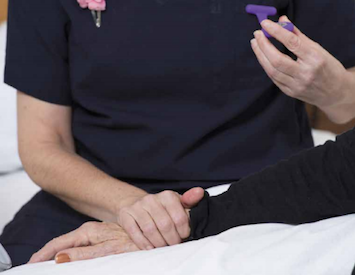The urgent need for regulatory reform was addressed by eminent medical professionals at the proactive HPARA annual conference. Professor Paddy Dewan reports.
THE Health Professionals Australia Reform Association (HPARA) is the peak body for healthcare regulation reform.
At the second annual meeting in Melbourne on 7 April, presenters told of their concerns about the performance of the national health regulator, AHPRA.
The HPARA meeting attracted 100 registrants and 26 papers focussed on the problems and solutions for various parts of the health regulatory environment.
Senator copened the meeting via video, telling of his role and reasons for calling for the Senate investigation into bullying and AHPRA, as well as the subsequent Senate investigation into the national law governing the national health regulator. (His video presentation is available here.)
In his introduction, Senator Xenophon gives credit to the contribution of HPARA, and to whistleblowers like Toni Hoffmann and Gabrielle McMullin and discusses the system failure that allowed for Dr Patel to practice medicine in Australia — namely, the failure of regulation of healthcare.
This is the third meeting organised in Australia in recent years designed to discuss the inappropriately legalistic paradigm that underpins the management of adverse events and complaints in medicine. The first, in 2011, took place two days after the untimely death of Emil Popovic, who had himself sought justice in healthcare regulation. Appropriately, HPARA has named an award in his honour.
The second such meeting – and the first under the HPARA banner – was in Sydney in April 2016 [videos available here]. The 2016 meeting included a presentation by John Stokes – the current chair of the HPARA committee – who spoke of “cowardice” last year, and this year presented a report of the 2016 Senate investigation into medical complaints. That investigation was instigated because of the bravery of people like John Stokes and Don Kane — the latter being the founding chair of HPARA.
The audience at the 2017 meeting heard the call for kindness in healthcare from the 2016 WA citizen of the year Anne Carey and were educated about self-care by Caroline Raphael before hearing observations of AHPRA that indicate that natural justice and fairness are easily seen to be inadequately applied. Jane Thompson, the re-elected treasurer of HPARA, shocked the 2016 audience with her story of what seemed no less than a tyrannical insult to her career.
The 2017 meeting also included presentations from industry, which showed that a witch-hunt mentality is not necessary to manage adverse events. Another focussed on how to establish a culture that is uplifting — highlighting the consequent improved quality and efficiency. A sobering realisation that all electronic communications are discoverable made the delegates insightful and gave hope to those seeking truth and a reminder that we should always be nice to one-another.
My own presentation, on 'Attribution Error', fitted with the mood of the day and echoed a review of the 2014 AHPRA report from the Victorian Legislative Council by David O’Brien, which showed a lack of national regulator accountability and transparency. David’s conclusions matched the unsavoury fact that the national regulator can – and on four occasions did – take action against a practitioner without there having been an adverse event for any of the four patients.
One was taken because of making a phone call to a parent — a call encouraged by the Victorian Medical Board CEO. The other three, related to single cases, in which no significant adverse event occurred but for which the regulator called for deregistration, seemed to cause public harm through unreasonable behaviour toward a healthcare professional while others go inadequately checked.
"Attribution error" refers to the blaming of an individual when the problem is the system — also described as “shooting the messenger”. Three threats of loss of fellowship for having questioned the performance and professionalism of others, aligned with AHPRA dysfunction, were also conveyed to the audience. This dysfunction was evident in the story presented by Gary Fettke, who, for giving dietary advice, is being subjected to a process that risks his being unable to perform orthopaedic surgery, was a further point conveyed to the audience.
RT @independentaus: Shooting the messenger and kicking him while he’s down http://t.co/lh9Gsb0 Investigate the Australian Medical Board
— Kaboom (@icyou) October 14, 2012
Obviously, we need reform.
That patients need protection, good healthcare professionals need guidance and poor practitioners need better regulation was obvious from the meeting.
Martin Fletcher, the CEO of AHPRA, despite being made aware that additional security had been arranged to protect his welfare because of antagonism that has been expressed by individuals, still came to the meeting. The current adversarial process hurts people.
Given that HPARA promotes kindness and respect, we sought to ensure that the AHPRA CEO felt safe. Unfortunately, a number of delegates reflected that they thought little compassion was shown during his lecture that followed, after stories of evidence that AHPRA processes had caused unwarranted harm; stories that will, hopefully, ultimately encourage AHPRA to advocate for significant change. It was notable that 70 per cent of AHPRA complaints result in no action. This means, 70 per cent of the time, practitioners are subjected to very stressful episodes — possibly for no reason. And, there was no evidence presented that those 70 of every 100 decisions, or any decisions, were the subject of a review of the quality of the regulatory outcome. How many should have led to sanctions?
At the end of the day, there had been many recommendations from many in the audience and from the speakers. One common theme being that AHPRA should not have the power to both regulate and register. Another common theme was that all regulatory healthcare bodies need to be more caring and better regulated. And there were repeated calls for a royal commission.
The 2018 HPARA conference will take place on 20 April at the Darling Harbour Novotel, Sydney.
Professor Paddy Dewan's training in Medicine, Surgery and Paediatric Urology has seen him employed in Melbourne, Dunedin, Dublin, London and the USA. Returning to Australia, he initially took up a position in Adelaide, both as a clinician and researcher in Paediatric Urology. He has renamed congenital urethral obstruction (COPUM), developed new approaches to the management of anorectal anomalies, especially the megarectum (Rectal Ectasia), and has written a number of landmark papers on the use of plastics in medicine and bladder enlargement without the bowel lining (Augmentation). Professor Dewan has been hounded by the Australian Medical Board since 2006 over a patient procedure that had no negative outcomes — and has now finally been dropped.

This work is licensed under a Creative Commons Attribution-NonCommercial-NoDerivs 3.0 Australia License
The real victims of bullying in health care are the patients https://t.co/iKnbNq3I8T @IndependentAus
— Dave Donovan (@davrosz) October 8, 2015
Monthly Donation
Single Donation
Healthcare, sham peer reviews and the way forward (Part 2) - By Dr. LEONG NG https://t.co/RNUy7VKx4r via @winstonclose
— Winston Close (@winstonclose) May 5, 2016
Don't shoot the messenger. Subscribe to IA.











